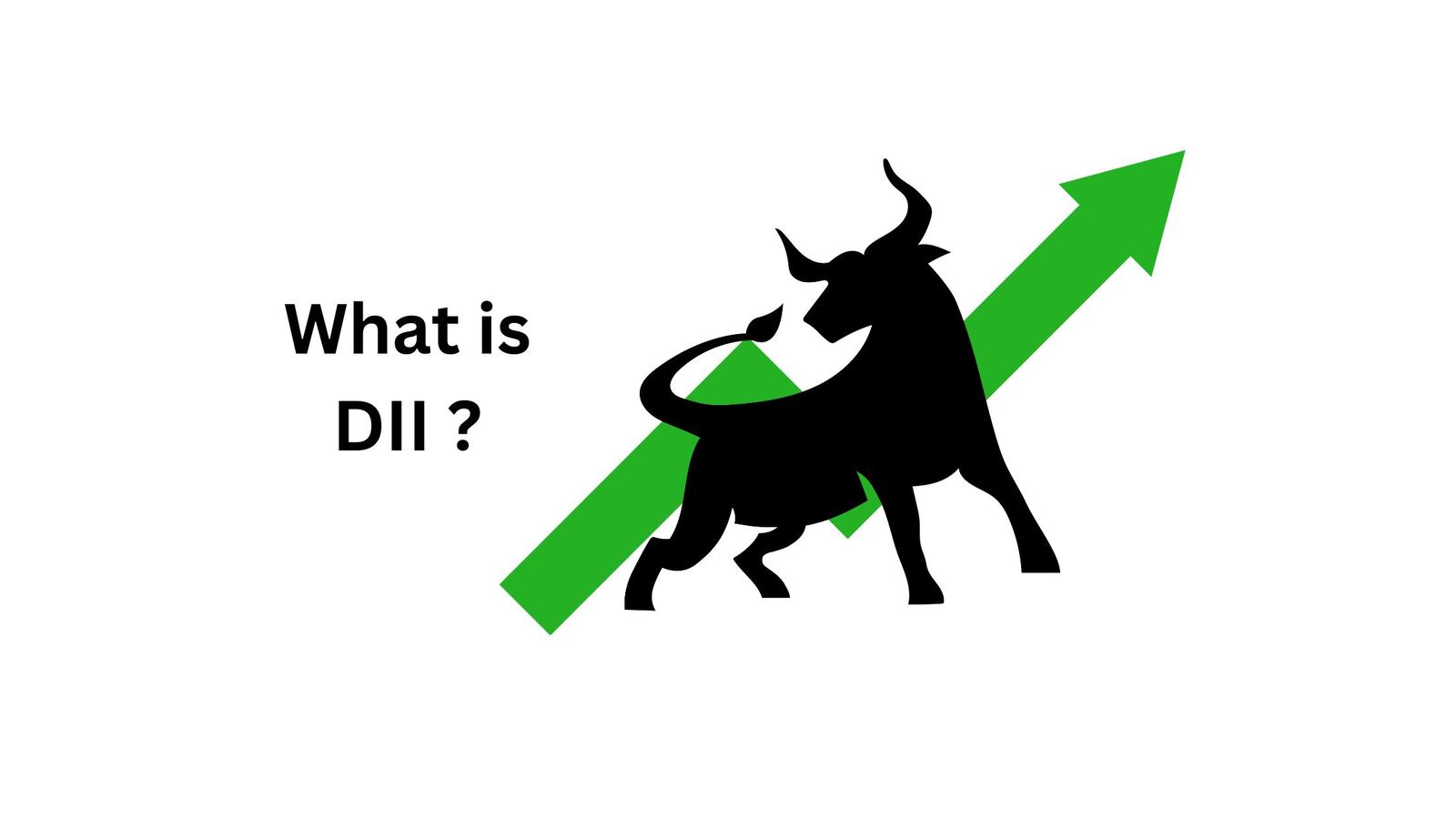What is DII in Share Market?
Domestic Institutional Investors (DIIs) play a fundamental role in the share market by investing in a variety of assets such as stocks and bonds within their home country. Unlike Foreign Institutional Investors (FIIs), which invest internationally, DIIs focus solely on domestic markets, fostering economic stability and growth. This guide breaks down the importance of DIIs, how they influence market stability, and their impact on economic development.
Key Roles of Domestic Institutional Investors (DII)
- Market Stability: DIIs provide stability to the share market by investing during times of economic uncertainty or foreign investor withdrawal, helping reduce market volatility.
- Economic Growth: Through their strategic investments, DIIs ensure that capital flows into promising domestic sectors, fueling expansion and economic development.
- Market Influence: DIIs significantly shape market trends, guiding investor sentiment and contributing to the financial health of the economy.
- Capital Formation: By pooling funds from various entities, DIIs promote the growth of the capital market, which is essential for economic progress.
How DIIs Operate in the Share Market
DIIs operate by gathering funds from domestic sources and strategically investing in multiple sectors, thus playing a vital role in capital formation and market stability. Here’s a closer look at their operations:
- Pooling and Gathering Funds: DIIs collect funds from individuals, organizations, or institutional investors to create substantial capital resources.
- Strategic Allocation: DIIs invest in diverse assets like stocks, bonds, and other securities, reducing risks through diversification.
- Informed Decision-Making: Investment decisions are based on thorough research and analysis, ensuring sound investments aligned with market trends.
Types of Domestic Institutional Investors
DIIs encompass various financial entities, each with specific investment goals and strategies. Here’s a breakdown of primary DIIs:
| Type of DII | Description |
|---|---|
| Indian Mutual Funds | Pools funds from investors to invest in stocks, bonds, and other securities, managed by professional fund managers for maximized returns. |
| Indian Insurance Companies | Invest premiums in secure assets to create reserves for future claims, balancing risk and returns through conservative strategies. |
| Local Pension Funds | Invests in stable assets to generate income for retirees, focusing on conservative strategies to ensure steady returns. |
| Banking & Financial Institutions | Invest across various asset classes, balancing short-term profitability with long-term stability for institutional strength. |
The Impact of DIIs on Market Stability
DIIs play a stabilizing role in the share market, especially during times of foreign investor withdrawal or economic fluctuations. Here’s how DIIs help maintain market equilibrium:
- Mitigating Volatility: When foreign investors exit the market, DIIs can step in to prevent rapid fluctuations.
- Strategic Investments: By focusing on long-term growth, DIIs help balance the market’s highs and lows, promoting steady economic progress.
- Encouraging Investor Confidence: The consistent presence of DIIs supports market confidence, attracting other investors and helping the economy thrive.
Also Read: What is FIIs? Understanding Foreign Institutional Investors and Their Role in the Economy
Why DIIs are Essential for Economic Development ?
The contribution of DIIs extends beyond market stability, as they play a crucial role in economic development:
- Capital Allocation: DIIs direct investments to sectors with high growth potential, helping industries expand and evolve.
- Job Creation: By investing in domestic businesses, DIIs facilitate job creation and industrial growth, which are key to economic progress.
- Shaping Financial Futures: DIIs’ investment strategies provide insights into economic trends, influencing the country’s financial landscape.
Conclusion
Domestic Institutional Investors are essential players in India’s financial markets. Through their investment strategies, they ensure the market’s stability, support economic growth, and contribute to the development of various sectors. With DIIs, the market gains a stabilizing force that maintains a steady financial environment, fostering confidence among all types of investors and promoting a balanced economic future.
By understanding the role of DIIs in the share market, investors and stakeholders can better appreciate the foundation they provide for a resilient and growing economy.
